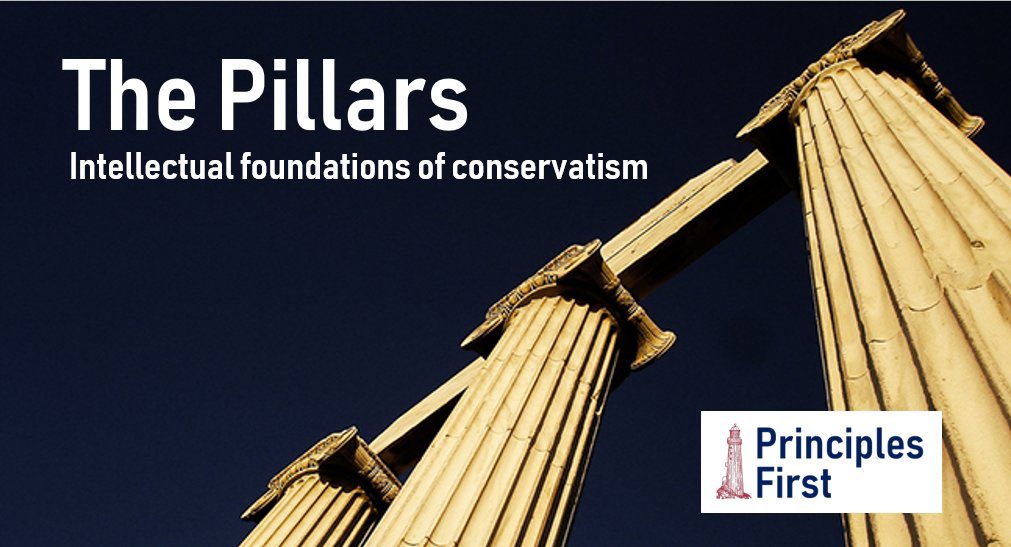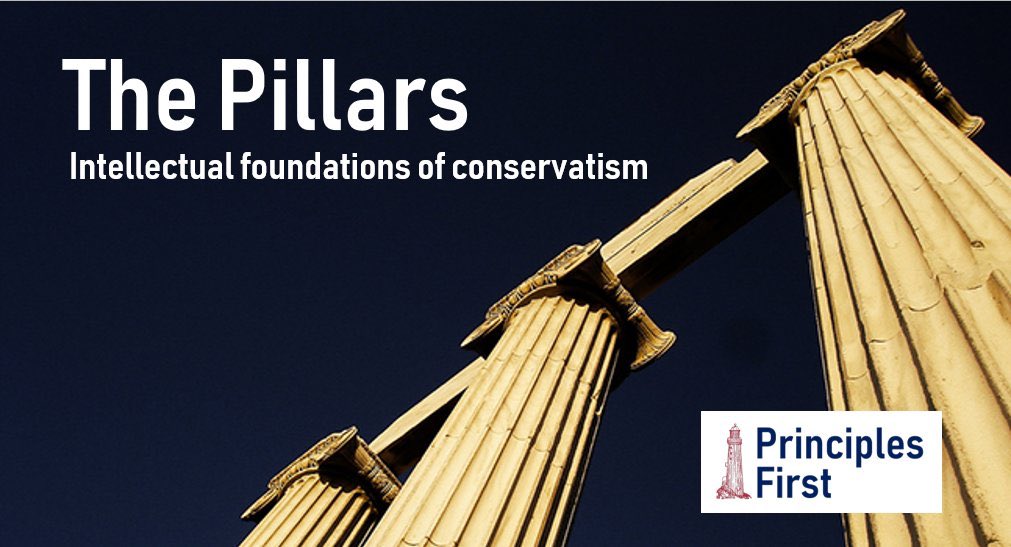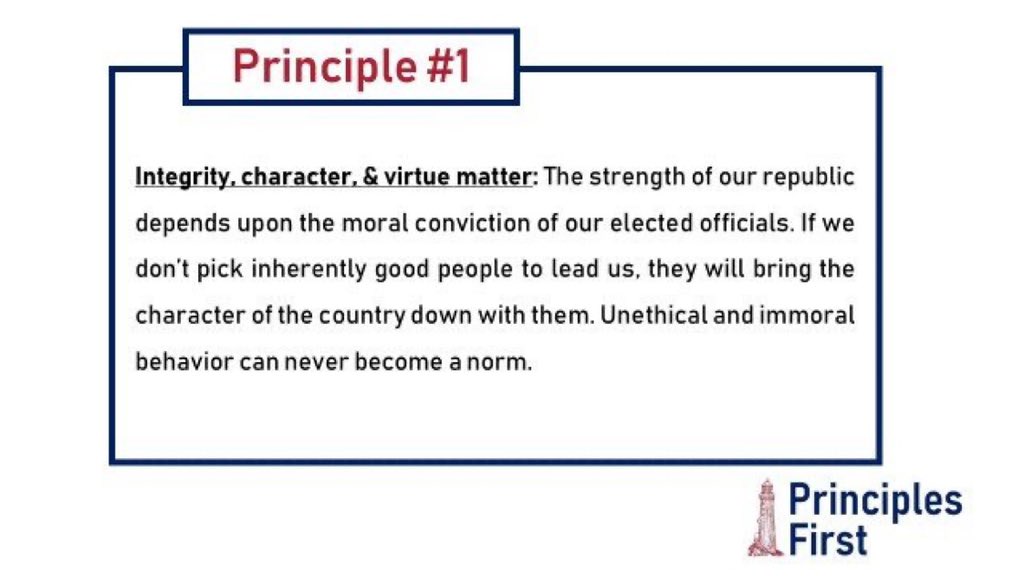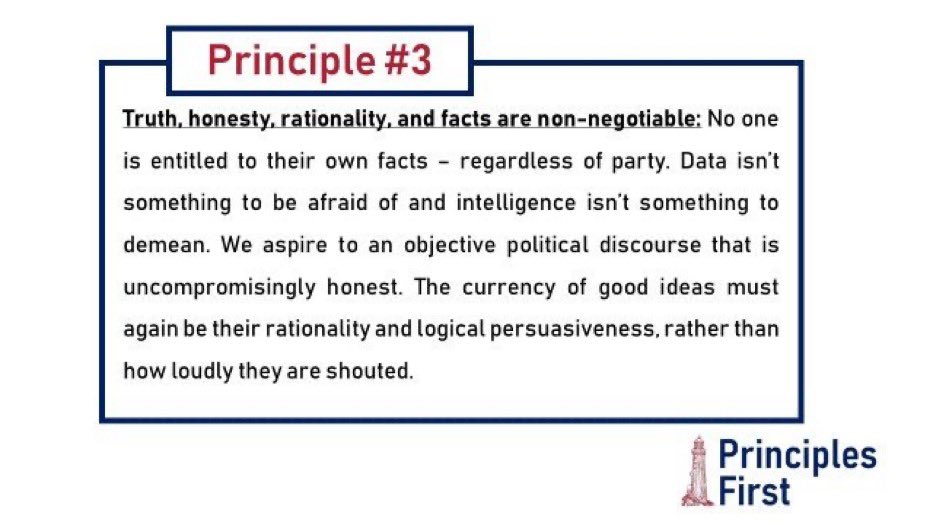We’ve outlined our principles, but we didn’t pull them from thin air. They are rooted in a rich history of ideas that dates back hundreds of years. This project will survey that history over the coming weeks.

Stay tuned for other thinkers that built on Burke, contradicted him, & made conservatism what it is today.
More to come. #ThePillars
Instead, Smith championed free trade.
The concept of emergent order continues to explain modern conservatives’ faith in markets today. #ThePillars
If innocence was made to suffer unjustly, he reasoned, there would be no incentive for virtue.
Yet, this freedom came with a consequent duty of citizenship—the duty to speak up.
A free marketplace, even to Mill, wasn’t enough to arrive at truth. It took healthy civic engagement.
From social media to campuses to church pews, Mill challenges us all to reject censorship & engage. #ThePillars
















